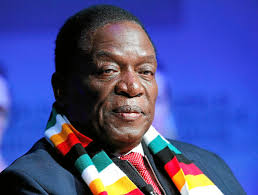
By Staff Reporter
Police say they will only allow people with exemption letters signed by senior executives to pass through checkpoints as the government continues to tighten lockdown restrictions.
President Emmerson Mnangagwa last week imposed a dusk-to-dawn curfew as part of measures to slow down the spread of the novel coronavirus and issued fresh stay-at-home orders.
Assistant Commissioner Paul Nyathi, the police spokesperson, yesterday said all health workers in uniform should carry their work identification cards while those in civilian attire should have a letter from the hospital medical superintendent or CEO stating the place, dates and times of reporting on and off duty.
Nyathi said workers from other companies and organisations should present letters from their CEOs or general managers with contact details of their bosses.
He said government and parastatal workers should have exemption letters from their directors and provincial heads.
A1 and A2 farmers should present their offer letters or lease agreements and an exemption certificate from a local officer in charge of a police station while their communal farmer counterparts need to get a supporting letter from a headman or village head stating the business to be done, the date, time and place. Workers for food retailers have to present certified copies of a shop licence and an exemption letter from the police.
Nyathi said to get medical supplies, one has to produce the medical cards or prescription and contact details of a doctor.
- Chamisa under fire over US$120K donation
- Mavhunga puts DeMbare into Chibuku quarterfinals
- Pension funds bet on Cabora Bassa oilfields
- Councils defy govt fire tender directive
Keep Reading
He said for the attendance of funerals, concerned relatives have to produce a copy of burial order to the local police station and need to be issued with exemption letters showing destination and dates of movement to those who intend to bury relatives in other areas.
“In addition, members of the public are implored to do their shopping within a five-kilometre radius of their residence to acquire basic necessities like food, gas and medicine,” Nyathi said.
The government has been accused of using the Covid-19 pandemic to restrict citizens’ rights to freedom of assembly for political reasons.










